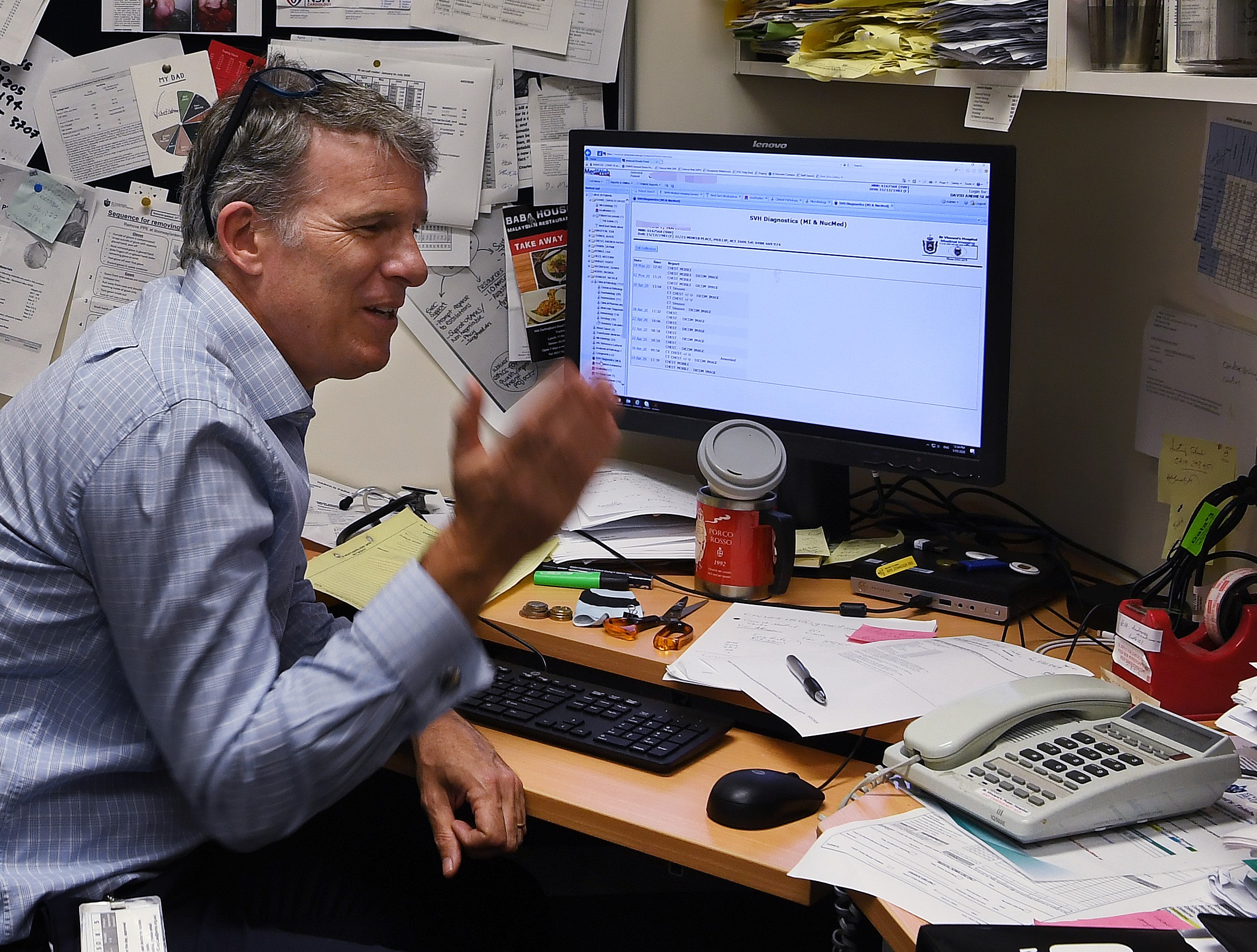WHO declares the pandemic is over. But is it really?
WHO declares the pandemic is over. But is it really?
19 May 2023
St Vincent’s Infectious Diseases expert, Dr David Andresen explains the global announcement, and what the future of COVID might look like.
Earlier this month, the World Health Organisation announced that COVID-19 is no longer a public health emergency of international concern.
The announcement comes more than three years following the declaration of a global state of emergency on January 30, 2020. A declaration that signalled a fundamental shift in the way will lived, worked, went to school and socialised. With more than 6.9 million lives taken, stretched economies and a serious mental health toll, it’s a welcome announcement.
Dr David Andresen, St Vincent’s Infectious Diseases Specialist agrees with this shift, noting that while COVID is still a threat for specific groups, the high levels of immunity from vaccination and or infection, along with improved clinical practise, has led us to a position of relative safety.
“The bottom line is, once you get enough population immunity, the transmission won’t be as intense and the clinical effects won’t be as severe.”
WHO reports that globally, 13.3 billion doses of COVID-19 vaccines have been administered and currently, 82% of adults over 60 years have completed the primary series. Back home, this figure rises to 95% of all Australians aged 12 and over.
These factors have contributed to a significant global decline in the number of COVID-19 related deaths, hospitalisations, and admissions to ICU since the beginning of the pandemic, leading to the official end of the global state of emergency. But when we’re still seeing transmission rates higher than that of when the global health emergency was first declared, it’s it really over?
Not really. “It’s over as a population health crisis. But it’s not going to go away”. There is still mortality out in the community from COVID but it’s very much in the immune suppressed and elderly population, so our focus will move to protecting the vulnerable instead of thinking we can protect everyone, when we obviously can’t”, explains Dr Andresen.
But with the constant evolutionary nature of the disease, what is the risk of a new variant taking us back to the dark days of full COVID wards, overrun pathology services and high rates of staff infection and furlough?
Dr Andresen explains. “When we see a new variant, we’ll almost certainly see increased transmission. Will we see increased disease? That’s the unknown.
So far, the new variants have seemed to bring less severe illness but we can’t actually disentangle that properly because population immunity and vaccination rates shot up at the same time. We don’t know if Omicron was less severe than Delta or if it was just that we had a better vaccinated population, but what we do know is we haven’t seen more variants prone to causing more serious disease”.
So what does this mean going forward? Dr Andresen predicts COVID will become seasonal, much like Influenza and RSV, with annual boosters recommended to guard against antigenic drift, or subtle changes in the virus that we now call ‘variants’.
“We still see infection but mostly with mild disease. There is something more fundamental about our protection against severe disease that these variants so far don’t seem to escape”.
That’s good news, but Dr Andresen points out that if we do see a spike in severe illness, the health system knows how to respond.
Moving beyond the pandemic, the WHO recommendations state that in short, we should remain prepared for future events, integrate COVID-19 vaccination into regular vaccination programs, continue national surveillance on respiratory pathogens, ensure medical supply availability, and support research.
With all of these recommendations already in place at St Vincent’s, Dr Andresen is looking forward to opening up discussions about mask use. “Once we’re through winter, I’m sure it’s a question we’ll all be discussing. We need to consider impaired communication, loss of trust and that ability to build rapport with your patient, share a smile, that non-verbal body language and feedback that you lose to some degree. It all impacts on the patient experience”.
We’re not quite there yet. While COVID-19 has become more endemic than a pandemic, vigilance is key to keeping it that way.
And what of the next pandemic?
“The great thing about pandemics is that they’re unpredictable. It’s like tossing a 100 sided coin and if you roll a one you get a pandemic that year. We could roll a one three years in a row, or we could roll a one in another 50 years”.
Let’s hope it’s the latter.

Dr David Andresen discussing COVID